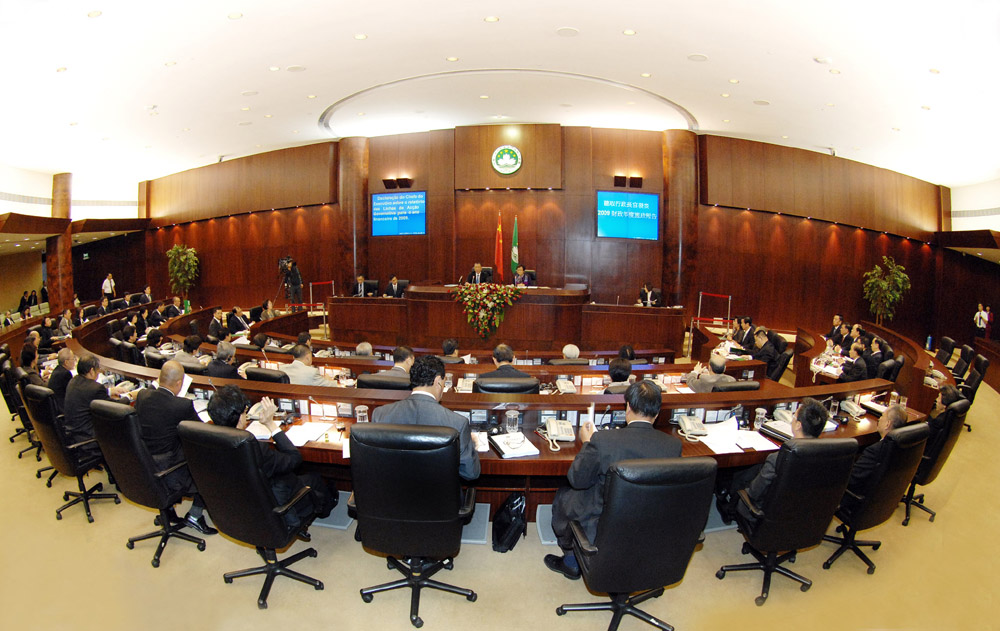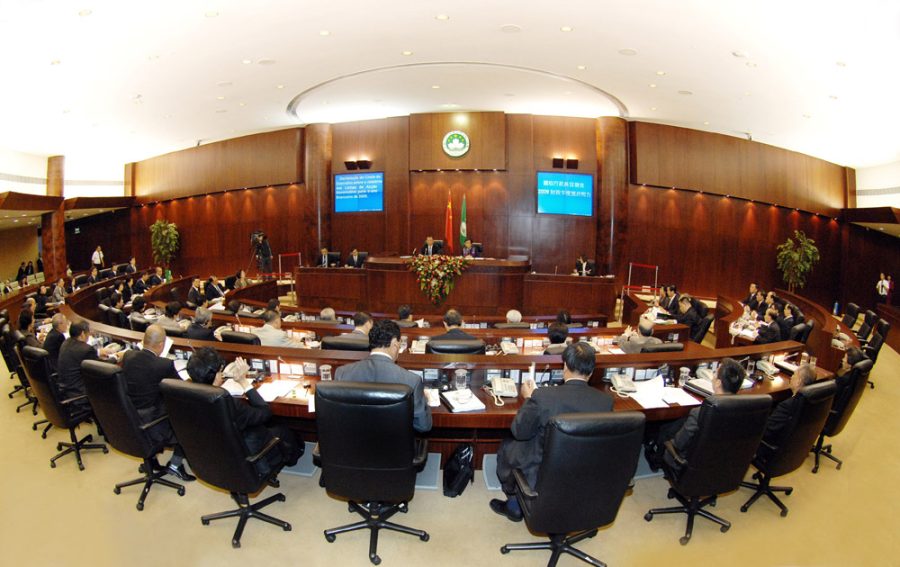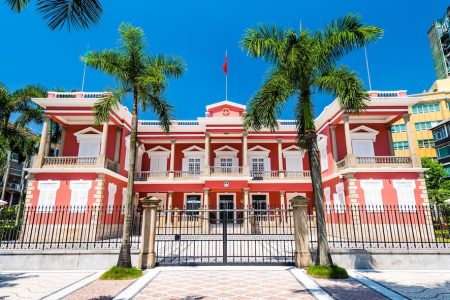Macau, China, 11 Nov – Macau Chief Executive Edmund Ho Hau Wah announced today that the government is going to invest 10.2 billion patacas (US$1.27 billion) in the public works sector in order to stimulate economic growth and to help face potential difficulties going forward for the region.
“The government is going to launch a series of public works projects that will have a direct impact the economy. These project are, specifically, the first stage of construction of Macau’s light rail (LRT), speeding up the construction of public housing, embellishing roads that belong to the protected areas of World Heritage sites, and some reorganising of old neighbourhoods, in order to stimulate the economy,” the Chief Executive said.
Speaking before the Macau Legislative Assembly presenting the Government Lines of Action for 2009, Ho said that it plans to increase funding for small and medium-sized businesses (SMEs) by injecting 1.5 billion patacas (US$ 187 million) into the Industrial and Commercial Development Fund.
The Chief Executive also announced that the government will present a proposal to the Legislative Assembly to increase the maximum limit of bank guarantees for small and medium-sized companies, from 300 million patacas to 3.5 billion patacas.
“Our objective is to provide a more flexible, readily available and efficient funding to small and medium-sized companies in order to help them face the expected economic difficulties going forward,” he said.
Edmund Ho, who made a speech that lasted around 60 minutes, also said “in order to lessen the impact of the pressure felt by the slowdown of economic growth and incentivise youths to dedicate more time to learning and studies, the government will adopt a series of measures to reduce taxes and for tax exemption, and offer subsidies to Macau’s citizens and companies,” which represents an overall investment of 1.896 billion patacas (US$ 237 million).
Ho said that all students with a Macau resident identity card that regularly study at educational institutions can obtain a subsidy of 1,500 patacas (US$ 187) every academic year for educational material.
Macau’s Chief Executive also said that in 2009 the government will offer subsidies to all Macau residents, similar to what it is did this current year, when it provided 5,000 patacas (US$625) to each resident and said that it will distribute vouchers for medical services.
The government plans to continue to reduce professional tax by 25% for all of the active population, and maintain its current level of 200,000 patacas that benefit from tax exemption (previously 32,000 patacas) and ensure that permanent Macau residents that do not own homes and go to buy their first home continue to benefit from not paying stamp duty.
Ho also said that it plans to continue offering a housing subsidy to families in need, a subsidy for electricity until March 2010, financial support for people that work full-time earning a low income, and support for buying own homes.
“Considering that that the gaming and gambling industry is the foundation of the Macau economy, the government is going to have meetings with representatives from this sector with a view to analyse suitable solutions for this area.” “Our main objective, is, on one hand, to ensure that operators and other companies that work for the sector keep job posts for local residents, and also, to maintain a quality of service and competitiveness in the sector,” said Ho.
The Chief Executive said that one of the government’s priorities for 2009 is “strengthening supervision of financial institutions and ensuring financial security,” despite believing that it is “secure and healthy”. Ho added that the government is committed to strengthening the regional services platform and improving economic and commercial cooperation with the provinces and regions of China.
“The government plans to optimise mechanisms of regional cooperation, namely between the Guangdong province and Macau, between Fujian and Macau, and also cooperation with the territories of the Great Pearl River Delta.” “The government is going to pay special attention to improving cooperative and complementary relations with the Special Administrative Region of Hong Kong,” he said.
Ho added that the government plans “maximise the economic and commercial platform between China and Portuguese-speaking countries, stimulating its relations with regional cooperative organisations namely the Great Pearl River Delta platform, so that from this platform, China, Portuguese-speaking countries and Macau can take full advantage of benefits.”
Macau’s Chief Executive also said that in regards to the supervision of the public sector “the Anti-Corruption Committee has put together a proposal for a bill” that is expected to be submitted to the Legislative Assembly during the first quarter of 2009.
Ho, who ends his term on 19 December, 2009, concluded by saying that he will continue to carry out his role using “every bit of energy in order to consolidate the foundations that will ensure a sustainable development and stability for Macau,” rejecting any pessimisms relating to the current situation.
“Considering forecasts that point to a year of difficulties for our economy, the government has prepared a series of political measures and has brought together the necessary administrative and financial resources to support those that need it (…) and to find solutions for the problems that have arisen in the process of our development,” he said.
(MacauNews)






